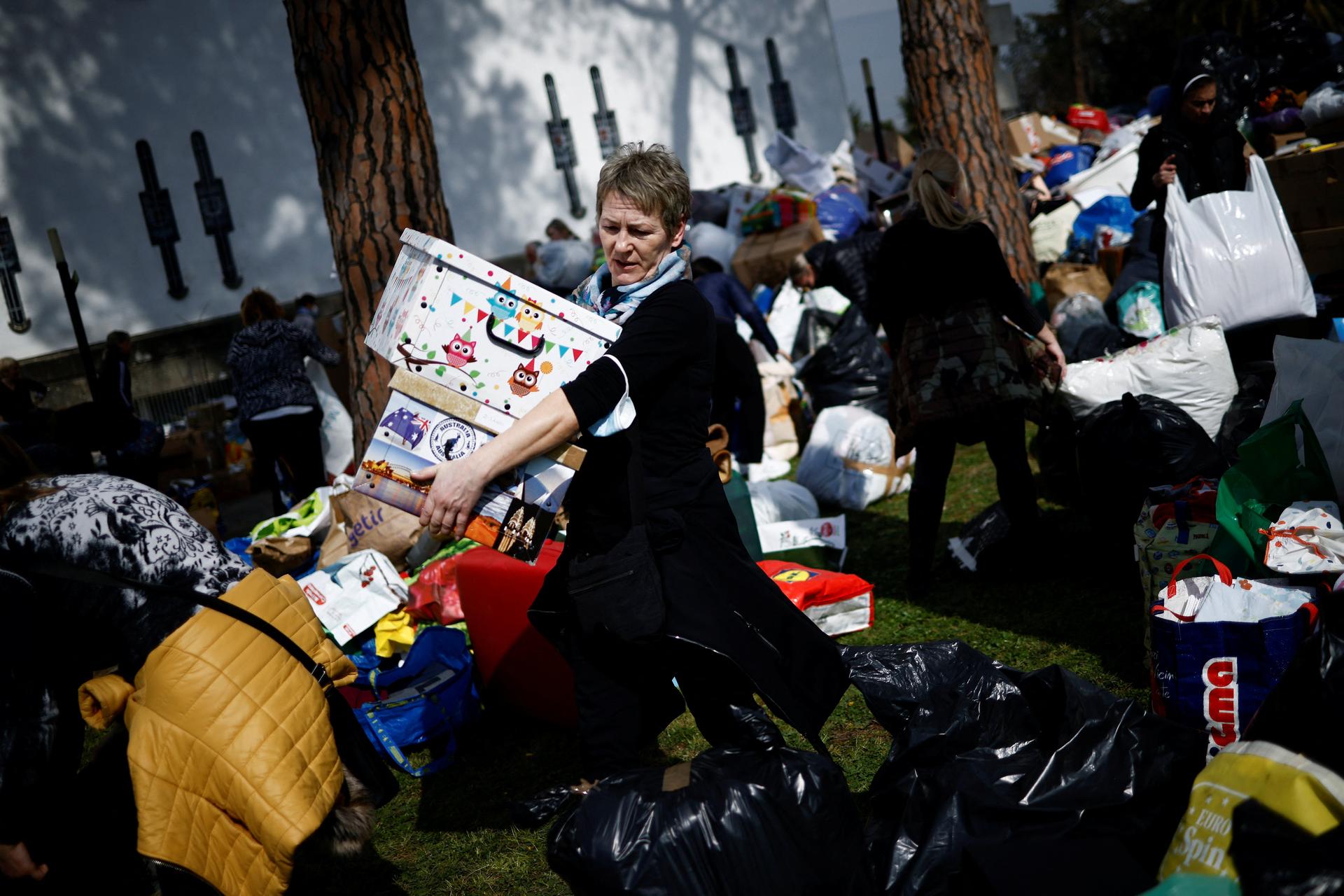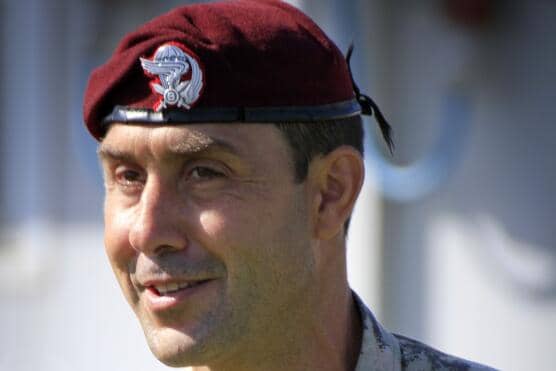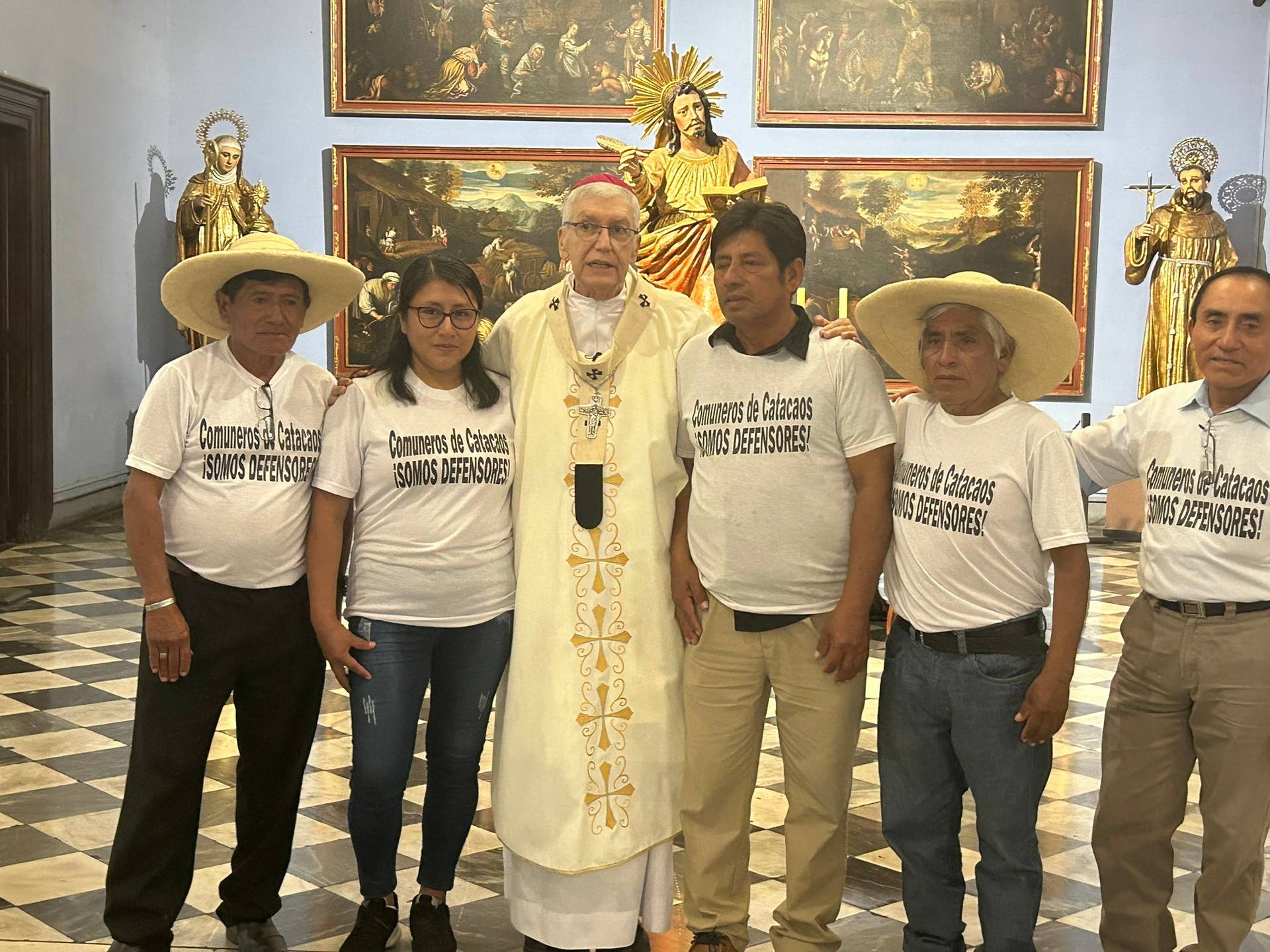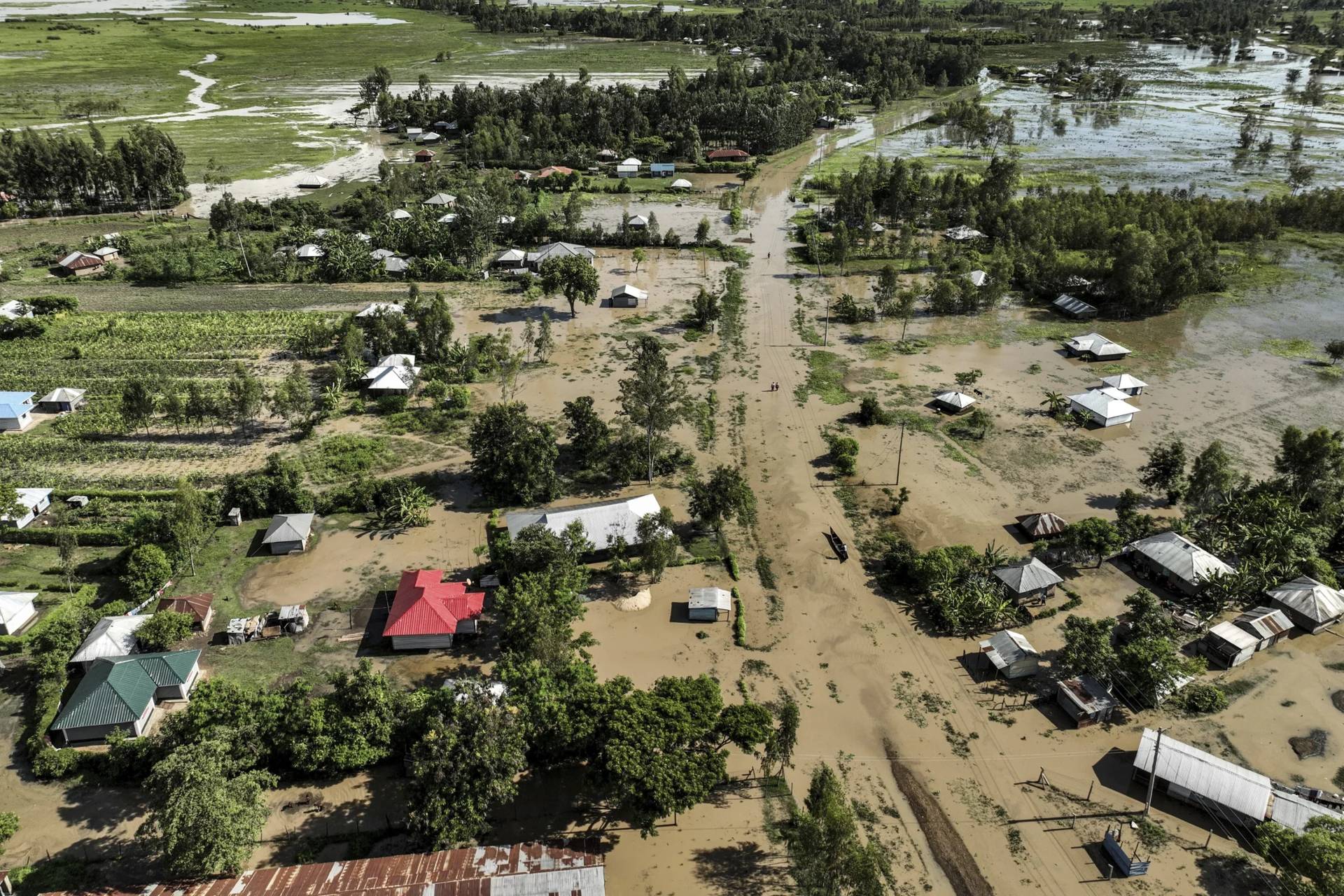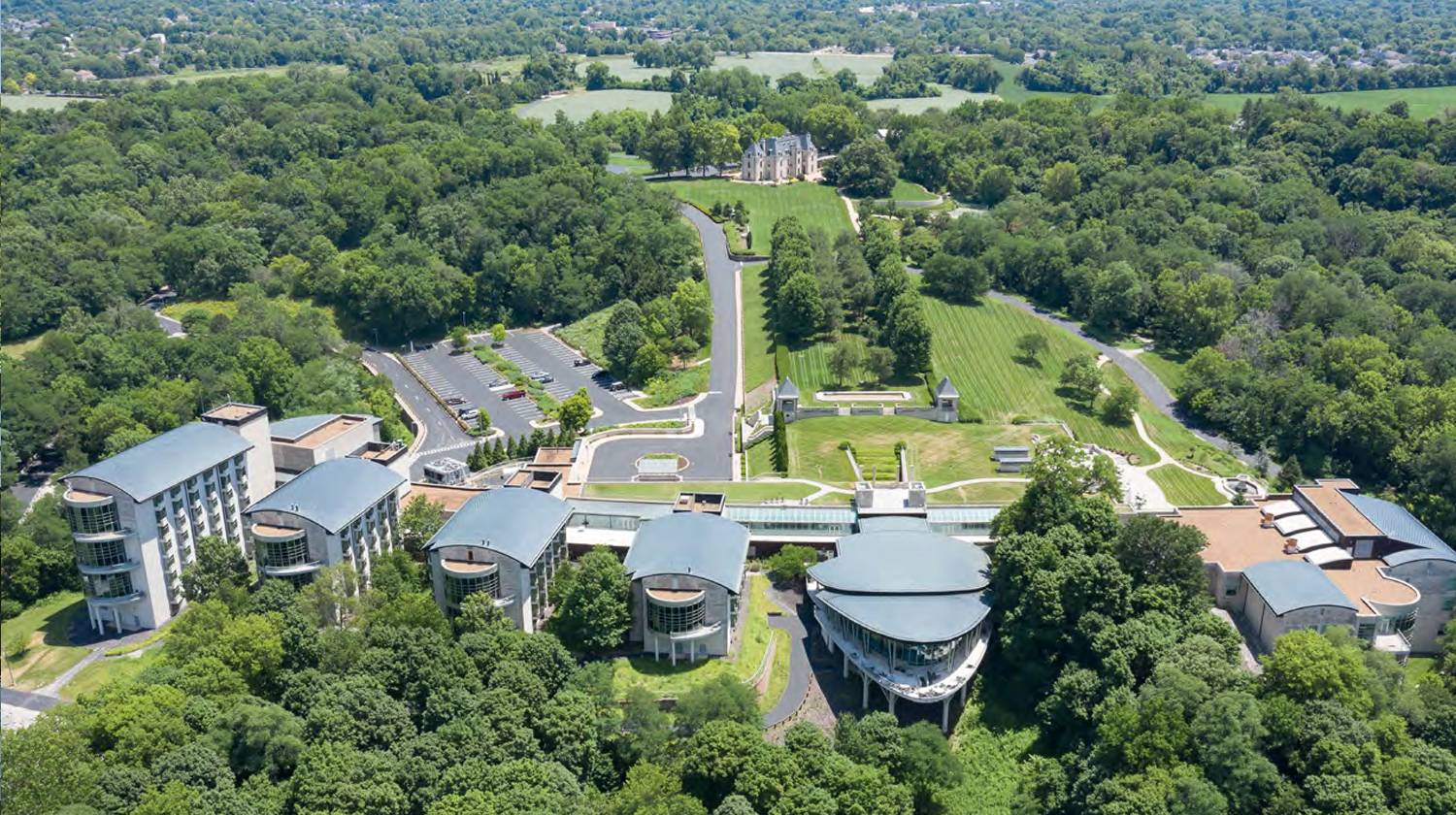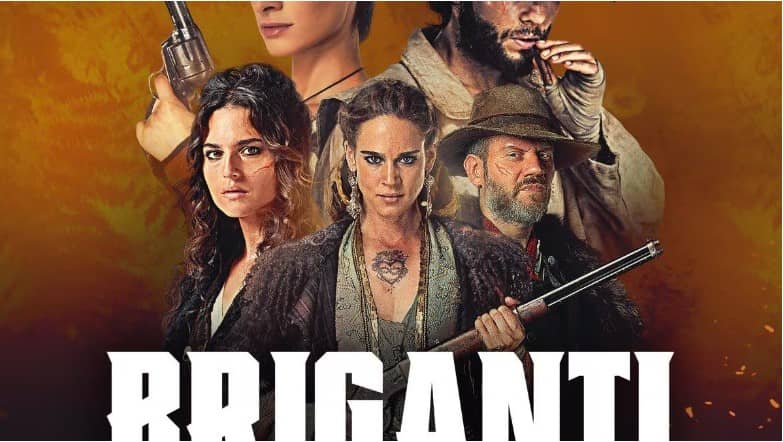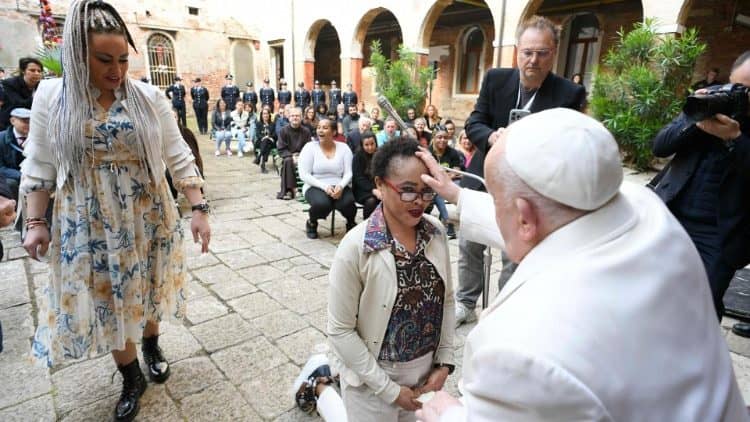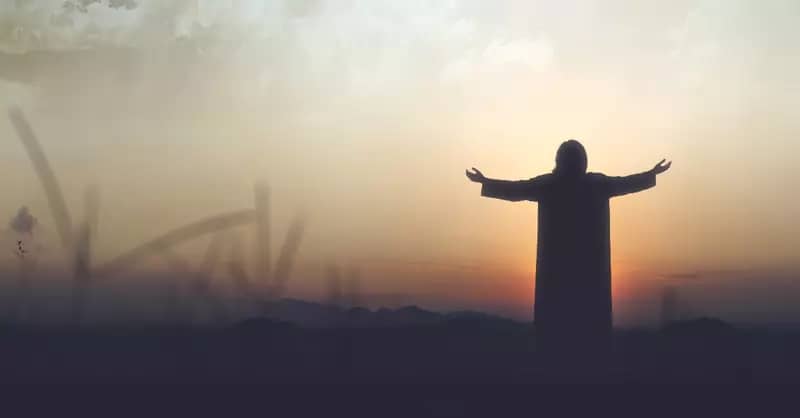ROME – Though they all knew that Vladimir Putin conducting a full invasion of Ukraine was a possibility, the people in Rome’s main Ukrainian church had not actually prepared for it.
“My mother is still in Ukraine, and she refuses to leave the family home,” said Andryi, who helped coordinate the volunteers collecting donations for their homeland on Saturday. “My sister, however, had to flee: She has three little children, and the fourth will be born at any moment. She is now in Poland, as a refugee. She had it all, and now has nothing. Soon, maybe not even a husband: My brother-in-law had to stay back and fight.”
The collection in the Basilica of Santa Sofia, home to the Ukrainian Greek Catholic Church in Rome, began almost immediately. People are bringing food, medicine, clothes, diapers, feminine hygiene products, and other necessities.
“If people need it regularly in their lives, then refugees of war need it too,” said Father Marco Semehen, rector of the church.
The building, the basement, the courtyard, have all become a huge warehouse. Several trucks have already left for three cities in western Ukraine where there are Caritas distribution centers from which they will try to reach several besieged cities.
“We need more trucks willing to go at least to the border,” Andryi said. “We are working with Ukrainian truckers who were already here when the war began. But they are not enough to meet the generosity we are witnessing. They won’t actually have to go into Ukraine: The aid is divided into smaller vans because the Russians are bombing humanitarian aid too.”
The basilica is relatively small by Roman standards, however, as the saying goes, the house is small, but the heart is big. And it shows: All around the building, boxes and bags pile up. Some people work cataloging, others discarding useless items, and others loading trucks.
“It’s impossible to know how many goods we have classified in the past week,” said Tatiana, a Ukrainian woman who has been coming since Feb. 24. She has a Ukrainian handkerchief around her neck, and has become somewhat of a leader of the “female” sector.
“Us women, we are better at classifying things. Them men can do the heavy lifting,” she told Crux.
And there are some heavy things to lift: boxes filled to the brim with tuna cans, oil bottles, or rice (Crux counted 84 kilos of rice going into just one box. It’s a wonder it held together).
“These have been exhausting days, there is no sense in denying it,” another woman said. In her 70s, she left Ukraine a decade ago, when she lost her husband, following her children, who were living in Rome.
Her grandchildren were born in Rome, “but they are Ukrainian,” she said, with a mixture of sadness and pride in her eyes. The eldest left on Monday to join the war.
“On the ride here, a man questioned the wisdom of young men going – or staying – to fight the Russian tanks,” she said. “But when I asked him what would he do, he went silent. Eventually he told me ‘I would make sure my wife and children were safe, and I would die fighting for Italy. Fighting for freedom’.”
“Well, that’s what we crazy Ukrainians are doing,” she said, as she filled yet another box with olive oil.
“We are sending aid to all who need it. It might mean a refugee, it might be a soldier, it might be someone who wasn’t able to flee. Well, in my head, these bottles of olive oil, and the jars of Nutella, are going to my grandson,” she said.
Santa Sofia, in the outskirts of Rome, is the reference center for the Ukrainian community in Rome. Italy has the largest number of migrants from Ukraine in the European Union, with about 236,000, more than a quarter of the total, according to 2020 Eurostat data.
This has now changed, of course, as an estimated 1.5 million Ukrainians have fled their homes following Russia’s invasion, and are currently being hosted by Poland, Hungary, and other nations bordering Ukraine.
Some of those volunteering at Santa Sofia are preparing their homes, because they know that eventually the influx of refugees will reach Italy.
“I know, I know we didn’t do enough for those fleeing violence in Africa,” an Italian man who called himself Paco said. “And it might be racist, unfair, and a long list of things. But though we did nothing then, at least we are doing something now.”
Among those who have donated goods – particularly medicine – to Santa Sofia is Pope Francis. This week, the Vatican is also organizing a collection among its employees, and the things collected will be sent to Ukraine through this church, which the pontiff visited in 2019.
Among those helping out on Saturday is 9-year old Borys. He was born in Rome to Ukrainian parents, and they have gone back to Kyiv several times since: His grandparents have chosen to stay.
“I am sad … I don’t really understand what is going on. Only that we can’t go back because of the bombs,” he said, running off to the next bag of pasta.
His mother, Anna, apologizes, as if he had done something wrong: “We told him we were coming to help, not make friends … Maybe he took it a bit too seriously!”
Anna is among those who fear that Putin’s end goal is not Ukraine, because “he is a madman who wants war,” and who will keep going, “use any excuse he wants to escalate even more.”
The concern that, eventually, the war will reach Italy is something that has kept her awake at night.
“If it does, then we will be the ones doing the fighting, someone else packing the donations, coming from farther away,” Anna said. “I just hope that, if the day comes, and death finds me as I’m fighting, God will remember me as this, and not as that. I chose to be here, helping out. I would never choose war.”
Follow Inés San Martín on Twitter: @inesanma
